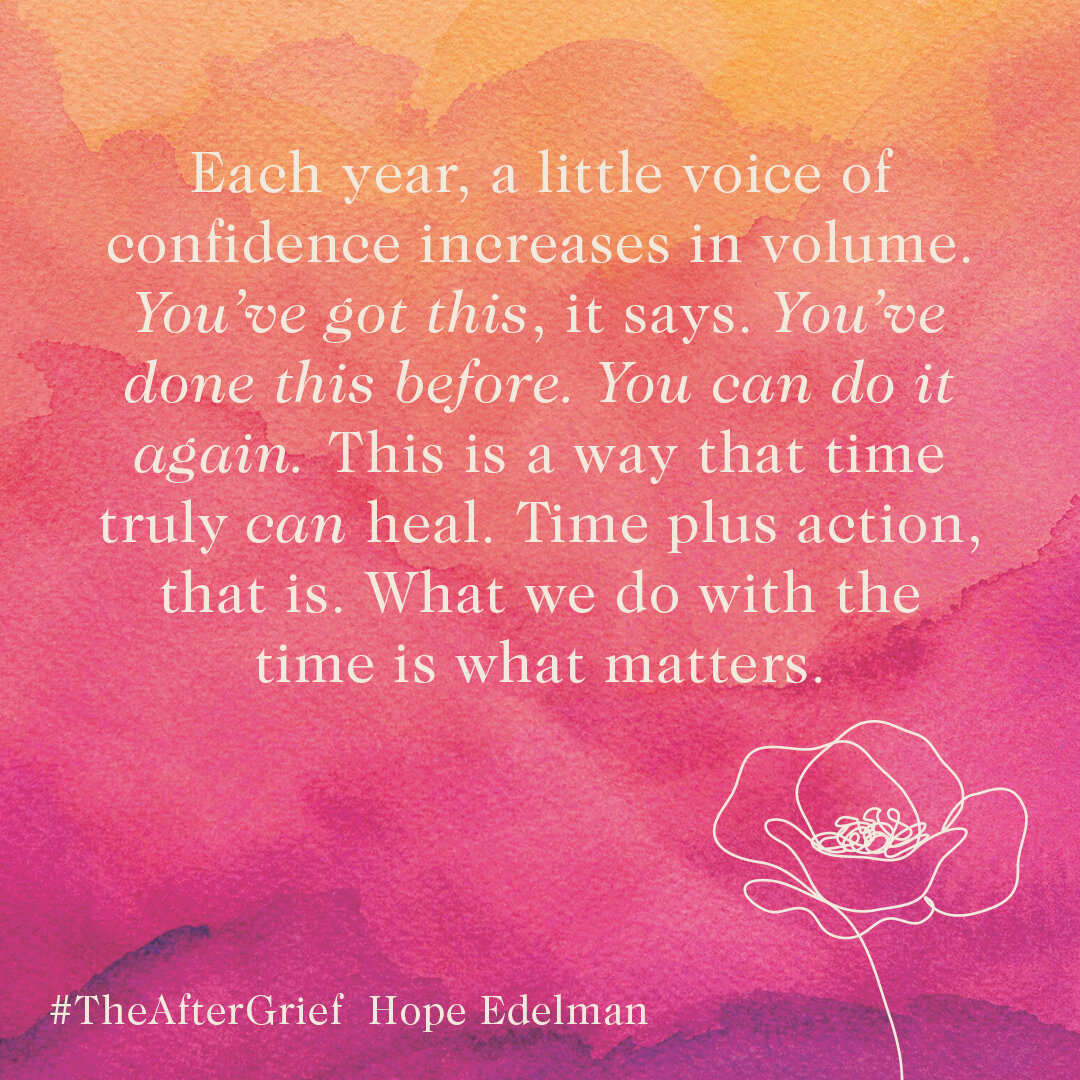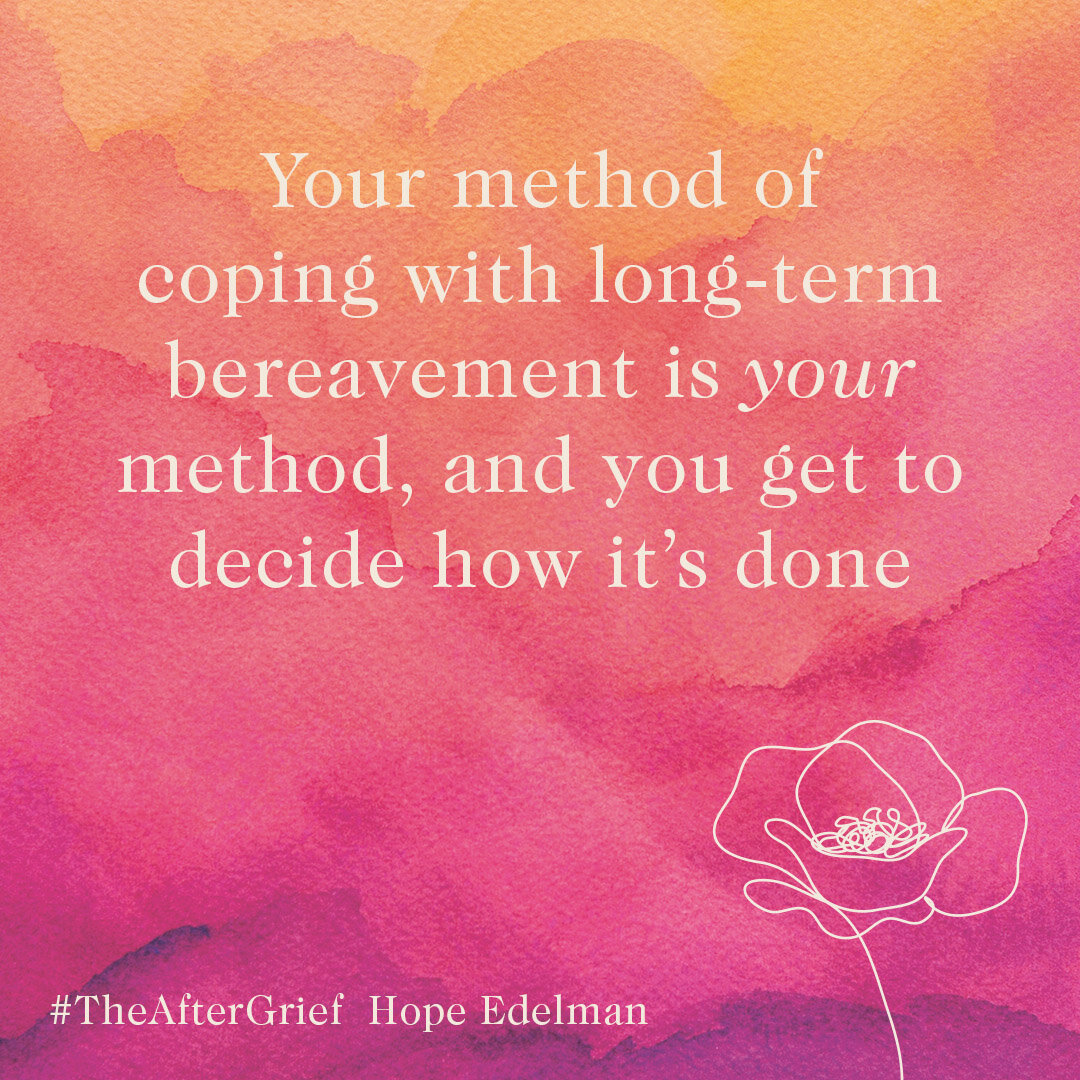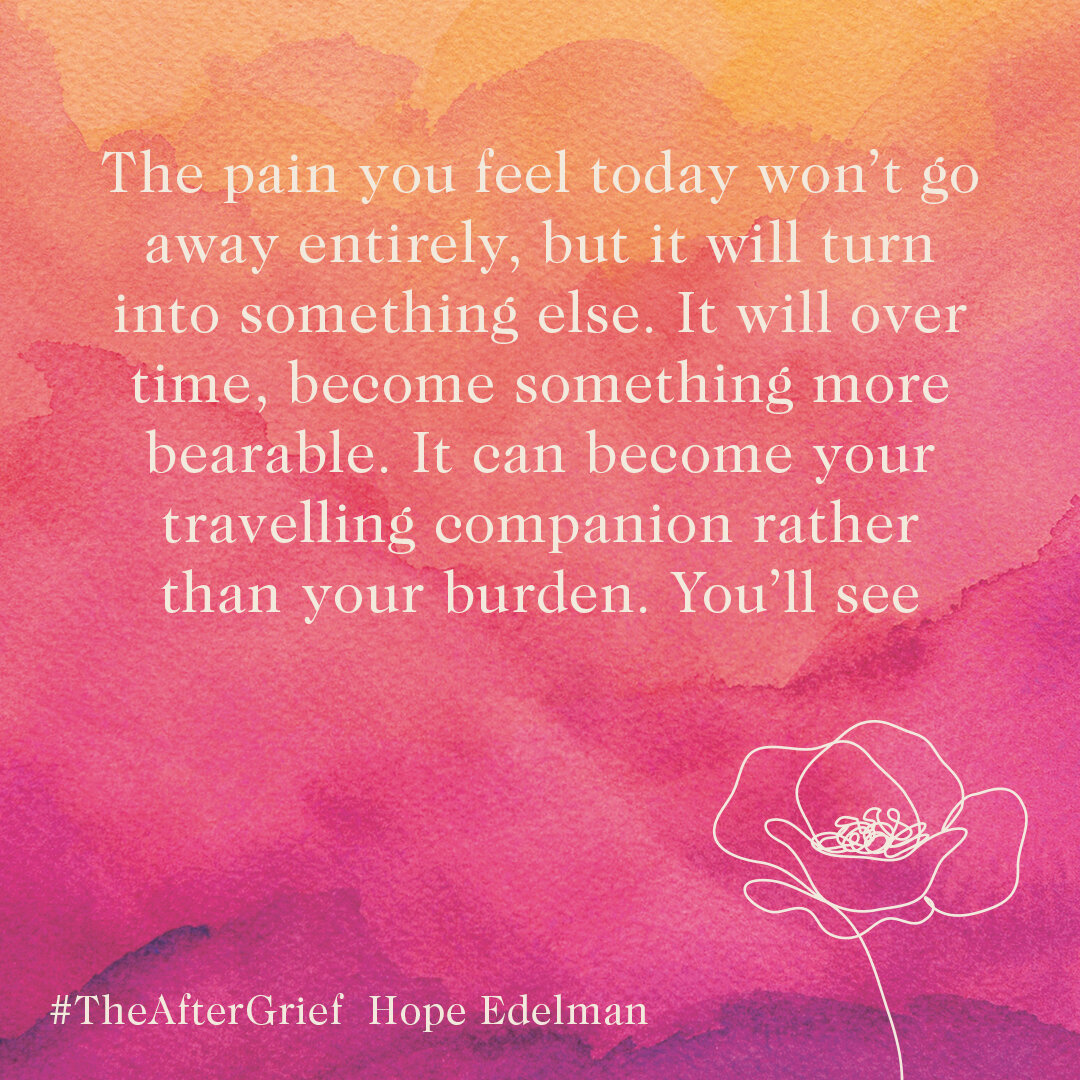By Hope Edelman, who has written several books about grief and loss
How the jagged edges of it eventually start wearing down. What felt unbearable at first will become possible to carry with equanimity and, at times, even with grace. You never stop missing your loved one. You’ll continue to imagine what they’d say. You’ll always wish you could share news with them, good and bad. But you do stop expecting them to call or to be there when you come home. Is this what we call “acceptance”? Maybe.
That however we define it, acceptance is a way station, not a final destination. It’s a point we arrive at and depart from and return to and depart from, many times. Grief is anything but linear. It’s cyclical, with certain holidays, calendar dates, seasons, and major life transitions causing upsurges that can take us by surprise. Over time, these bursts of griefs become less intense and further apart. Daily gut punches become weekly, then monthly, then just every now and then. Sometimes emotion will come rushing in before the mind connects the dots. The body is smart that way. It often knows first.
That the mandate to “let go” of a loved one who’s died isn’t helpful. It might even be impossible. When you’ve loved someone deeply, that feeling needs a place to go. For much of the 20th century, grief theory was all about breaking our emotional ties to departed loved ones and moving on. Fortunately, 21st-century thinking emphasizes ways to stay connected to our loved ones and to create new inner relationships with them. Finding meaningful ways for them to be present instead of absent can alleviate some of the sorrow.
How other people who’ve suffered major loss will immediately understand you, often without words. Avoid the ones whose patience wears out before your pain does. And by all means, steer clear of anyone who thinks you should be “over it” by an arbitrary date. Bless their hearts, but they really don’t understand. Look instead for those who know the secret, invisible handshake of loss. Share your story with them. Listen to theirs. It helps.
That some questions will never have answers. Questions like, Did they know how much I loved them? What was their final thought? Where are they now? The existential mystery of it all can pretzel up your brain. Some things are going to be unknowable, and that’s okay. Saying, “I don’t know what happened next” is a true statement, not evidence of imperfection. A story with a missing piece can still be a complete story.
Hope’s latest book, The AfterGrief, is out in the UK on March 4th
About Hope Edelman
Hope is an expert on grief and loss. She has written seven books, including the New York Times bestseller Motherless Daughters. Having lost her own mother at a young age, she has since spent years researching the subject of loss. She lives and works in Los Angeles and Iowa City but facilitates grief workshops all over the world. Her latest book, The AfterGrief is out on the 4th March in the UK.
You can follow Hope on Instagram and Twitter
www.hopeedelman.com






